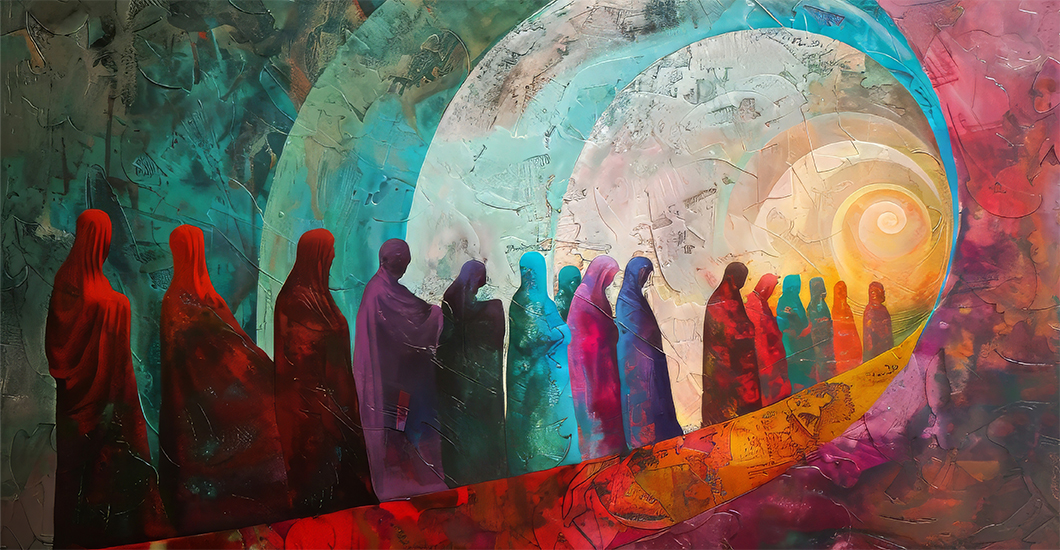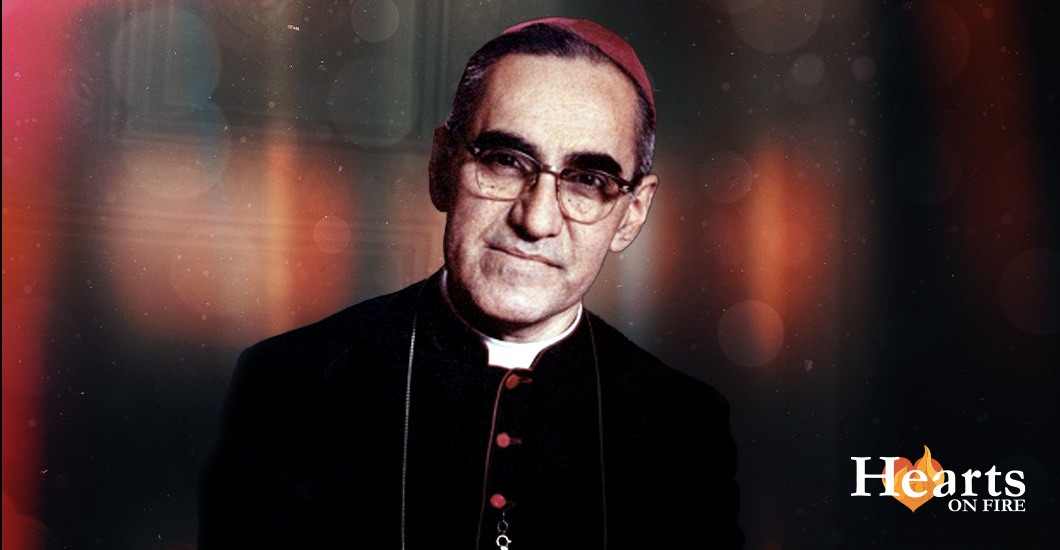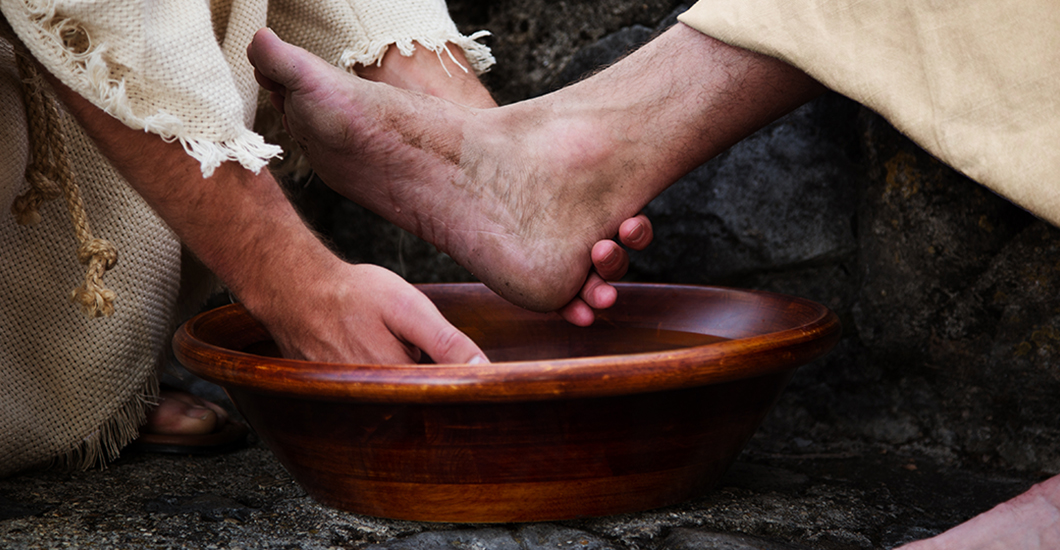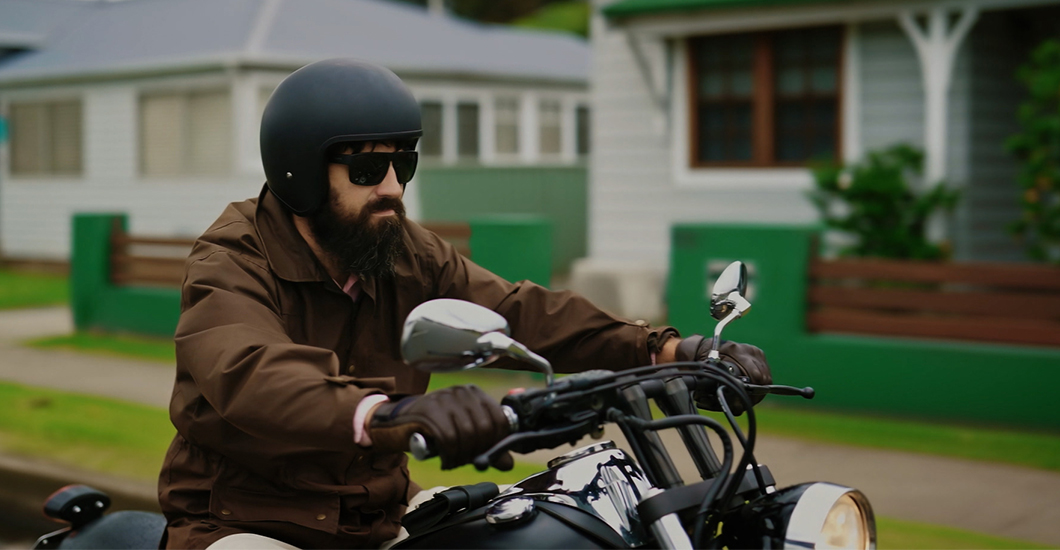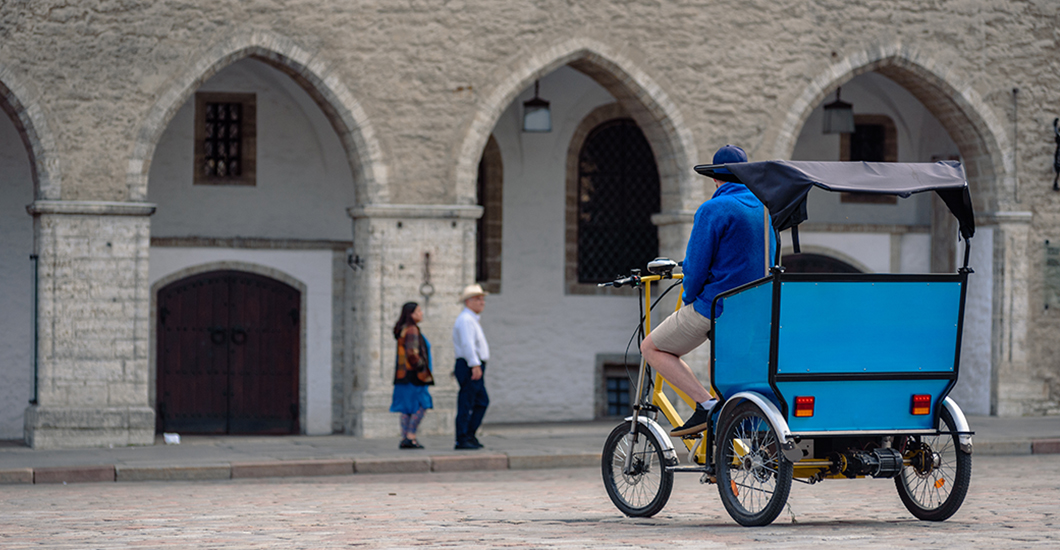Home/Evangelize/Article
Trending Articles
What’s your attitude?
Many of us are familiar with the parable in the Gospel of Luke (Luke 18: 9-14) that dramatizes and contrasts the prayers of the Pharisee and the tax collector. When we compare their prayers, we might identify more with the prayer of the Pharisee who thanks God that he was not a sinner like the tax collector. Thinking ourselves generous, we may have prayed such a prayer without recognizing the self-righteous attitude and the sense of superiority embedded in that prayer. Jesus instead praises the humble prayer of the tax collector whose humility and honesty allows him to go home justified.
If we adopt the attitude of the tax collector, we won’t be likely to judge other people unjustly. If we sincerely see ourselves as the sinner we are, how could we pronounce the final judgment on another? Judging others’ final destiny comes from an attitude of superiority, a sense of pride that we might say was the first and greatest sin. Our Lord always leaves the door for mercy open until the final moment.
As we go through our day, do we stop to consider how many times we judge others based on exterior perceptions, whereas the Lord sees into their hearts? Do you ever find yourself condemning others when you are watching or reading the news? How often does a person’s race, religion, sexual orientation, or any other trait that is different from our own cause us to pass a negative judgment on them?
Unfortunately, many of us don’t realize the gravity of judging others while failing to closely examine our own actions and motivations. In the Gospels, Jesus embraces the outcasts and sinners. He shows love and acceptance toward those that the self-righteous Pharisees and the scribes rejected. The compassion Jesus had for sinners should fill our hearts-whenever we are dealing with those who are different from us or whose actions offend us.
When we humbly realize that we are indeed sinners, we will throw ourselves on God’s mercy and realize that the blood Jesus shed on Calvary was shed for us, for our enemies, and for those we are inclined to judge. They too have precious souls that Jesus longs to redeem.
When we pray for people, let’s first examine the attitude we have toward them. Is our attitude compassionate, or is it purely judgemental? A prayer that comes from a loving heart will be more fruitful than a prayer born of judgment.
Let us ask the Lord’s forgiveness for the times we have judged others unjustly and beg Him to bless us with a compassionate heart like His.
Susan Uthup works as a rehabilitation instructor at a rehabilitation center for the blind in Chicago, Illinois. She lost her eyesight in a car accident over fifteen years ago. Uthup shared her inspiring story in the SHALOM WORLD original series "Triumph" (www.ShalomWorld.org/triumph).
Related Articles
As Catholics, we have heard from the time we were little: “Offer it up.” From a little headache to a very serious emotional or physical hurt, we were encouraged to ‘offer it up.’ It wasn't until I was an adult that I pondered the meaning and purpose of the phrase, and understood it as ‘redemptive suffering.’ Redemptive suffering is the belief that human suffering, when accepted and offered up in union with the Passion of Jesus, can remit the just punishment for one's sins or the sins of another. In this life, we are going to suffer various minor and major physical, mental, emotional, and spiritual trials. We can choose to grumble about it or we can surrender it all and unite our suffering with Jesus’ Passion. It can be redemptive not only for us, we can even help someone open their heart to receive Jesus' healing and forgiveness. We may never know in this life how offering up our sufferings has helped someone else break free of the bondages that have held them for so long. Sometimes, God allows us to experience the joy of seeing someone break loose from a life of sin because we offered up our suffering for them. We can offer up our sufferings even for the poor souls in purgatory. When we finally arrive in Heaven, imagine those we were praying for and offering up our sufferings greeting us and thanking us. Redemptive suffering is one of those areas that can be difficult to fully understand, but when we look at Scripture and what Jesus taught and how his followers lived, we can see that it is something that God is encouraging us to do. Jesus, help me each day to offer up my little and big sufferings, difficulties, annoyances, and unite them to You on the Cross.
By: Connie Beckman
MoreA gift that you can access from anywhere in the world, and guess what? It’s free not just for you but for everyone! Imagine that you are lost in a deep pit of darkness and hopelessly groping around. Suddenly, you see a great light and someone reaching out to rescue you. What a relief! The overwhelming peace and joy can’t be fully expressed in words. The Samaritan woman felt like this when she met Jesus at the well. He told her: “If you knew the gift of God, and who it is that is saying to you: ‘Give me a drink,’ you would have asked Him, and He would have given you living water.” (John 4:10) As soon as she heard these words, the woman realized that she had been waiting her whole life for this. “Give me this water, so that I may never be thirsty,” she implored: (John 4:15) It was only then, in response to her request and thirst for knowledge of the Messiah, that Jesus revealed Himself to her: “I am He, the One who is speaking to you.” (John 4:26) He is the living water that quenches every thirst—the thirst for acceptance, the thirst for understanding, the thirst for forgiveness, the thirst for justice, the thirst for happiness, and most importantly, the thirst for love, God’s love. Until You Ask… The gift of Christ’s presence and mercy is available for everyone. “God proves His love for us in that, while we were still sinners, Christ died for us.” (Romans 5:8) He died for every sinner so that by the Blood of Christ, we may be cleansed from our sin and be reconciled with God. But, like the Samaritan woman, we need to ask Jesus. As Catholics, we can easily do this through the Sacrament of Penance, confessing our sins and being reconciled with God when the priest absolves us from sin, using the power given by God to act in persona Christi (in the person to Christ). It gives me great peace to frequent this Sacrament because the more I do it, the more I become receptive to the Holy Spirit. I can feel Him speaking through my heart, helping me to discern good from evil, growing in virtue as I flee from vice. The more frequently I repent of my sins and turn back to God, the more sensitive I become to the presence of Jesus in the Holy Eucharist. I become conscious of His presence in those who have received Him in Holy Communion. I feel His warmth in my heart when the priest walks past me with the ciborium filled with the Consecrated Host. Let’s be honest about it. Many people line up for Communion, but very few people line up for Confession. It is sad that many people are missing out on such a very important source of grace to strengthen us spiritually. Here are a few things that help me get the most out of Confession. Be Prepared A thorough examination of the conscience is necessary before Confession. Prepare by going through the commandments, the seven deadly sins, the sins of omission, the sins against purity, charity, etc. For a sincere confession, the conviction of sin is a prerequisite, so it is always helpful to ask God to enlighten us about certain sins we committed that are unknown to us. Ask the Holy Spirit to remind you of sins you have forgotten, or make you aware of where you have been unconsciously going wrong. Sometimes we delude ourselves into thinking that something is okay when it’s not. Once we prepare well, we can again seek the assistance of the Holy Spirit to wholeheartedly admit our failures with a contrite heart. Even if we are not approaching confession with a perfectly contrite heart, it can happen during confession itself through the grace present in the Sacrament. Regardless of what you are feeling about certain sins, it’s good to confess them anyway; God forgives us in this Sacrament if we honestly admit our sins, recognizing that we have done wrong. Be Honest Be honest with yourself about your own weaknesses and failures. Admitting struggles, and dragging them out of the darkness into the light of Christ will relieve you of paralyzing guilt and bolster you against sins you tend to commit repeatedly (such as addictions). I remember once, in confession, when I told the priest about a certain sin that I just couldn’t seem to come out of, he prayed over me to specifically receive the grace from the Holy Spirit to help overcome it. The experience was so liberating. Be Humble Jesus told Saint Faustina that “A soul does not benefit as it should from the Sacrament of Penance if it is not humble. Pride keeps it in darkness.” (Diary, 113) It is humiliating to kneel in front of another human being and openly encounter the dark areas of your life. I remember receiving a very long sermon for confessing a grave sin once and getting reprimanded for repeatedly confessing the same sin. If I can learn to look at these experiences as the loving corrections of a Father who cares so much about your soul and willingly humble myself, those bitter experiences can become blessings. The forgiveness of God is a powerful indication of His love and faithfulness. When we step into His embrace and confess what we’ve done, it restores our relationship with Him as our Father and we, His children. It also restores our relationship with one another who belong to one body—the body of Christ. The best part of receiving God’s forgiveness is how it restores the purity of our soul so that when we look at ourselves and others, we get to see God dwelling in all.
By: Cecil Kim Esgana
MoreIt is not easy to predict whether you will be successful, wealthy or famous, but one thing’s for sure– death awaits you at the end. A fair bit of my time these days is taken up practicing the art of dying. I must say, I am enjoying every moment of this exercise, at least ever since I have come to the realization that I have entered the heavy end of the scales of time. I am well and truly into and past the three score years and ten, and so I begin to think seriously: what positive preparations have I put in place for the inevitability of my demise? How stainless a life am I living? Is my life as free as possible from sin, especially the sins of the flesh? Is my ultimate aim saving my immortal soul from eternal damnation? God, in His mercy, has allowed me ‘extra time’ in this game of life, in order for me to get my affairs (especially spiritual affairs) in order before I go over the top and into the shadows of the valley of death. I had a lifetime-plus to sort these out, but like many, I neglected the most important things in life, preferring to foolishly search for more wealth, security, and instant gratification. I can’t say I’m anywhere near successful in my endeavors as the distractions of life continue to plague me, despite my senior age. This constant conflict is ever so annoying and tormenting, yet when one can still be tempted, such wasted emotions are so futile. Escaping the Inevitable Despite my Catholic upbringing and its urging to embrace and look forward to the inevitable tap on the shoulder from God’s ‘Angel of Death,’ I’m still anticipating that letter from the King congratulating me on reaching ‘the big zero.’ Of course, like many in my age bracket, I am reaching out to stave off the inevitable by embracing any incentive to help prolong my earthly existence with medicines, hygiene, diet, or by whatever means possible. Death is inevitable for everyone, even for the Pope, our loveable Aunt Beatrice, and royalty. But the longer we escape the inevitable, the more that glimmer of hope beams forth ever so faintly in our psyche—that we can push the envelope, put one more puff of breath into that balloon, extending it to its very outer utmost boundary. I suppose, in a way, that may even be the answer to successfully stretching the death date—that positiveness, that resistance to immortality. I have always thought, if I can avoid unjustifiable taxes by whatever means, then why not try avoiding the other certainty, death? Saint Augustine refers to death as: “the debt that must be paid.” Archbishop Anthony Fisher adds on: “When it comes to death, modernity is into tax evasion, so also is our present-day culture in denial about ageing, frailty, and death.” The same goes for fitness gyms. I counted just last week, five such establishments in our relatively small community, in the outer western suburb of Sydney. This frantic desire to be fit and healthy is in itself noble and commendable, providing we don’t take it too seriously as it may affect every aspect of our lives to its detriment. And sometimes, it can and does lead to narcissism. We should be confident in our ability and talents but keep in sight the virtue of humility that keeps us grounded to reality, so that we don’t wander too far from God’s guidelines for normality. To the Fullest Degree We even try to tame ageing and death, so they occur on our own terms through cosmetic and medical excesses, cryopreservation, illegally stolen organs for transplants, or the most diabolical way of trying to beat natural death by the act of Euthanasia…as if there aren’t enough mishaps that take our lives prematurely. Still, most people dread the thought of death. It can be paralyzing, bewildering, and depressing, because it will be the end of our earthly life, but it simply takes a mustard seed of faith to change all those ‘end of the world’ feelings and open up a whole new vista of hope, joy, pleasurable anticipation, and happiness. With faith in an afterlife with God and all that it entails, death is simply a necessary door that must be opened for us to take part in all the promises of Heaven. What a guarantee, given by our Almighty God, that through the belief in His son Jesus and living a life based on His instructions, after death comes life-life to the fullest degree. And so, we can confidently ask the question: “Oh death, where is thy victory, death where is thy sting?” (1 Corinthians 15:55) Smidgeon of Faith When entering the great unknown, trepidation is to be expected, but contrary to Shakespeare’s Hamlet, who said: “Death was the undiscovered country from whose bourn no traveler returns,” we who have been blessedly endowed with the gift of faith have been shown the evidence that some souls have returned from the bowels of death to give witness to that misinformation. The Catechism of the Catholic Church teaches that death is a consequence of sin. The Church's Magisterium, as authentic interpreter of the affirmations of Scripture and Tradition, teaches that death entered the world on account of man's sin. “Even though man's nature is mortal, God had destined him not to die. Death was therefore contrary to the plans of God the Creator and entered the world as a consequence of sin.” The Book of Wisdom confirms this. “God did not make death, and He does not delight in the death of the living. He created everything so that it might continue to exist and everything He created is wholesome and good.” (Wisdom 1: 13-14, 1 Corinthians 15:21, Romans 6:21-23) Without genuine faith, death seems like annihilation. Therefore, search out faith because that is what alters the idea of death to the hope of life. If the faith you possess isn’t strong enough to overcome the fear of death, then make haste to strengthen that smidgeon of faith into a full-blown belief in Him Who is Life, for after all, what is at stake is your Eternal Life. So, let’s not leave things too much to chance. Have a safe journey, see you on the other side!
By: Sean Hampsey
MoreAdversities mark our lives on earth, but why would God allow that? About two years ago, I fronted up for my yearly blood test and when the results came back, I was told I had ‘Myasthenia Gravis.’ Fancy name! But neither I nor any of my friends or family had ever heard of it. I imagined all the possible terrors that may be ahead for me. Having lived, at the time of diagnosis, a total of 86 years, I had incurred many shocks. Rearing six boys was full of challenges, and these continued as I watched them build their families. I never gave into despair; the grace and power of the Holy Spirit always gave me the strength and trust I needed. I eventually depended on Mr. Google to learn more about ‘Myasthenia Gravis’ and after reading pages of what may happen, I realized I just had to trust my doctor to help me through. He, in turn, put me in the hands of a specialist. I went through a rocky road with newer specialists, changing tablets, more trips to hospital, and eventually having to give up my license. How could I survive? I was the one who drove friends to different events. After much discussion with my doctor and family, I finally realized that it was time to put my name down for acceptance into a nursing home. I chose Loreto Nursing Home in Townsville because I would have opportunities to nurture my faith. I was faced with many opinions and advices—all legitimate, but I prayed for guidance from the Holy Spirit. I was accepted into Loreto Home and made up my mind to accept what was on offer. It was there that I met Felicity. A Near-Death Experience A few years ago, there was a 100-year-flood in Townsville and a reasonably new suburb went under water with most houses inundated. Felicity’s house, like all others in the suburb, was low set, so she had about 4 feet of water throughout the entire house. As the soldiers from the Army Base in Townsville took up the task of a massive cleanup, all the residents had to find alternate accommodation to rent. She stayed at three different rental properties during the next six months, simultaneously helping the soldiers and working towards making her home livable again. One day, she began to feel unwell and her son, Brad, called the doctor on call, who advised on taking her to the hospital if things did not get better. The next morning, Brad found her on the floor with a swollen face and immediately called the ambulance. After many tests, she was diagnosed with ‘Encephalitis,’ ‘Melioidosis’ and ‘Ischemic attack,’ and remained unconscious for weeks. The contaminated flood waters she had waded through six months ago, it turns out, had contributed to an infection of her spinal cord and brain. As she floated in and out of consciousness, Felicity had a near-death experience: “As I was lying unconscious, I felt my soul leaving my body. It floated out and flew up very high to a beautiful spiritual place. I saw two people looking at me. I went towards them. It was my mother and father—they looked so young and were so happy to see me. As they stood aside, I saw something amazing, a stunning face of Light. It was God the Father. I saw people from every race, every nation, walking in pairs, some holding hands…I saw how happy they were to be with God, feeling at home in Heaven. When I woke up, I was so disappointed that I left that beautiful place of peace and love that I believed was Heaven. The priest who was tending to me all throughout my time in hospital said he had never seen anyone react as I did when I woke up.” Adversity into Blessings Felicity says she always had faith, but this experience of imbalance and uncertainty was enough to ask God: “Where are you?” The trauma of the 100-year-flood, the massive clean-up afterwards, the months of setting up her home while living in rental properties, even the nine months in hospital of which she had little memory of could have been the death of her faith. But she tells me with conviction: “My faith is stronger than ever.” She recalls that it was her faith that helped her deal with what she went through: “I believe I survived and came back, to see my beautiful granddaughter go to a Catholic High School and finish Year Twelve. She is going on to University!” Faith believes all things, heals all things, and faith never ends. It is in Felicity that I found the answer to a common question we all may face at some point in life: “Why does God allow bad things to happen?” I’d say that God gives us freewill. Men can initiate bad events, do evil things, but we can also call on God to change the situation, to change the hearts of men. Truth is, in the fullness of grace, He can bring good even out of adversity. Just as He led me to the nursing home to meet Felicity and hear her beautiful story, and just as Felicity found strength in faith as she spent endless months in the hospital, God can change your adversities into goodness too.
By: Ellen Lund
MoreDid you know that we have all been invited to the Greatest Feast in the history of mankind? A few years ago, I was reading the story of the birth of Dionysus with my students. Persephone, the legend goes, was impregnated by Zeus and asked to see him in his true form. But a finite creature cannot look upon an eternal being and live. So, the mere sight of Zeus caused Persephone to explode, there and then, on the spot. One of my students asked me why we don’t explode when we receive the Eucharist. I told him I didn’t know, but it couldn’t hurt to be prepared. The Approach Every day, and in every Catholic church around the world, a great miracle is at work—the greatest miracle in the history of the world: the Creator of the universe is incarnate on the altar, and we are invited to approach that altar to take Him in our hands. If we dare. There are some who argue—and convincingly—that we shouldn’t dare to walk up and grab the Eucharist as though it were a theater ticket or a drive-through order. There are others who argue, and convincingly, that the human hand makes a worthy throne for such a humble King. Either way, we should be prepared. In 2018, I visited the Tower of London with my family. We stood in line for an hour and a half to see the Crown Jewels. An hour and a half! First, we were issued tickets. Then, we sat through a documentary video. Shortly after, we were ushered through a winding series of velvet, roped corridors past silver and gold vessels, suits of armor, lavish and costly outfits of fur, satin, velvet, and woven gold…until at last, we were granted a brief glimpse of the crown through bullet-proof glass and over the shoulders of heavily armed guards. All that just to see the Queen’s crown! There is something infinitely more precious at every Catholic Mass. We should be prepared. We should be trembling. Mobs of Christians should be fighting for a glimpse of this miracle. So, where is everybody? Quarantine Miracle During the pandemic, when the Church doors were closed to the faithful, and we were forbidden—well, you were forbidden—from witnessing this miracle in person, how many begged the Church to have the courage to trust that we’d rather die than be deprived of this miracle? (Don’t get me wrong. I don’t blame the Church’s decision which was based on the very best medical advice.) I don’t remember hearing about any outrage, but then, I was busy hiding in the cloister, sterilizing countertops, and doorknobs. What would you give to have been there at Cana when Jesus worked His first miracle—to stand in the presence of the Queen of Heaven? What would you give to have been there on that first Holy Thursday night? Or to have stood at the foot of the Cross? You can. You’ve been invited. Be aware and be prepared.
By: Father Augustine Wetta O.S.B
MoreQ - My many Christian friends celebrate ‘Communion’ every Sunday, and they argue that the Eucharistic presence of Christ is only spiritual. I believe Christ is present in the Eucharist, but is there any way to explain it to them? A – It is indeed an incredible claim to say that at every Mass, a small piece of bread and a small chalice of wine become the very flesh and blood of God Himself. It is not a sign or a symbol, but truly the body, blood, soul, and divinity of Jesus. How can we make this claim? There are three reasons why we believe this. First, Jesus Christ said so Himself. In John’s Gospel, Chapter 6, Jesus says: “Amen, amen, I say to you, unless you eat the flesh of the Son of Man and drink His blood, you do not have life within you. Whoever eats My flesh and drinks My blood has eternal life, and I will raise him on the last day. For My flesh is true food, and My blood is true drink. Whoever eats My flesh and drinks My blood remains in Me and I in him.” Whenever Jesus says, “Amen, Amen, I say to you…”, this is a sign that what He is about to say is completely literal. Further, Jesus uses the Greek word trogon which is translated ‘to eat’—but really means ‘to chew, gnaw, or rip with one’s teeth.’ It’s a very graphic verb which can only be used literally. Also, consider the reaction of His hearers; they walked away! It says in John 6: “as a result of this [teaching], many of His disciples returned to their former way of life and no longer accompanied Him.” Does Jesus chase them down, tell them that they misunderstood Him? No, He allows them to leave—because He was serious about this teaching that the Eucharist is truly His flesh and blood! Second, we believe because the Church has always taught it from its earliest days. I once asked a priest why there was no mention of the Eucharist in the Creed which we profess every Sunday—and he replied that it was because no one debated His Real Presence, so it wasn’t necessary to officially define it! Many of the Church Fathers wrote about the Eucharist—for example, Saint Justin Martyr, writing around the year 150 AD, penned these words: “For not as common bread and common drink do we receive these; but we have been taught that the food which is blessed by the prayer of His word, and from which our blood and flesh are nourished, is the flesh and blood of that Jesus who was made flesh.” Every Church Father is in agreement—the Eucharist is truly His flesh and blood. Finally, our faith is strengthened through the many Eucharistic miracles in the history of the Church—over 150 officially documented miracles. Perhaps the most famous occurred in Lanciano, Italy in the 800s, where a priest who doubted Christ’s presence was shocked to find that the Host became visible flesh, while the wine became visible as blood. Later scientific tests discovered that the Host was heart flesh from a human male, type AB blood (very common among Jewish men). The heart flesh had been badly beaten and bruised. The blood had congealed into five clumps, symbolizing the five wounds of Christ, and miraculously the weight of one of the clumps is equal to the weight of all five taken together! Scientists cannot explain how this flesh and blood has lasted for twelve hundred years, which is an inexplicable miracle in itself. But how can we explain how this happens? We make a distinction between accidents (what something looks like, smells like, tastes like, etc) and substance (what something actually is). When I was a young child, I was at my friend’s house, and when she left the room, I saw a cookie sitting on a plate. It looked delectable, smelled like vanilla, and so I took a bite…and it was soap! I was so disappointed, but it taught me that my senses could not always decipher what something actually is. In the Eucharist, the substance of bread and wine change into the substance of Christ’s body and blood (a process known as transubstantiation), while the accidents (the taste, smell, look) remain the same. It does indeed take faith to recognize that Jesus is truly present, since it cannot be perceived by our senses, nor is it something we can deduce with our logic and reason. But if Jesus Christ is God and He cannot lie, I am willing to believe that He is not a sign or symbol, but truly present in the Most Blessed Sacrament!
By: Father Joseph Gill
MoreWhen your path is swarming with difficulties, and you’re feeling clueless, what would you do? The summer of 2015 was unforgettable. I was at the lowest point of my life—alone, depressed, and struggling with all my strength to escape a terrible situation. I was mentally and emotionally drained, and felt that my world was going to end. But strangely, miracles unfold when we least expect them. Through a string of unusual incidents, it almost seemed as if God was whispering in my ear that He has got my back. On that particular day, I had gone to bed desperate and broken. Unable to sleep, I was once again pondering the sad state of my life as I clutched my rosary, attempting to pray. In a strange kind of vision or dream, a radiant light began emanating from the rosary on my chest, filling the room with an ethereal golden glow. As it slowly started to spread, I noticed dark, faceless, shadowy figures at the periphery of the glow. They had been closing in on me with unimaginable speed, but the golden light grew brighter and drove them farther away whenever they tried to come close to me. I felt frozen, unable to react to the strangeness of the vision. After a few seconds, the vision suddenly ended, plunging the room into pitch blackness again. Deeply disturbed and afraid to sleep, I turned on the TV. A priest was holding up a Saint Benedict medal* and explaining how it offered a divine protection. As he discussed the symbols and words inscribed on the medal, I glanced down at my rosary—a gift from my grandfather—and saw that the Cross on my rosary had the same medal embedded into it. This triggered an epiphany. Tears started rolling down my cheeks as I realized that God was with me even when I thought my life was crumbling into ruin. A fog of doubt lifted from my mind, and I found solace in the knowledge that I was no longer alone. I had never realized the meaning of the Benedictine medal before, so this newfound belief brought me great comfort, strengthening my faith and hope in God. With immeasurable love and compassion, God was ever-present, ready to rescue me whenever I slipped. It was a comforting thought that embraced my being, filling me with hope and strength. Revamping My Soul This shift in perspective propelled me on a journey of self-discovery and growth. I stopped viewing spirituality as something distant and remote from my everyday life. Instead, I sought to nurture a personal connection with God through prayer, reflection, and acts of kindness, realizing that His presence is not confined to grand gestures but could be felt in the simplest moments of everyday life. A complete transformation did not happen overnight, but I began to notice subtle changes within myself. I’ve grown more patient, learned to let go of stress and worry, and embraced a newfound faith that things will unfold in accordance with God’s will if I place my trust in Him. Moreover, my perception of prayer has shifted, evolving into a meaningful conversation stemming from an understanding that, although His benevolent presence may not be visible, God listens and watches over us. Just as a potter sculpts clay into exquisite art, God can take the most mundane parts of our lives and shape them into the most beautiful forms imaginable. Belief and hope in Him will bring better things into our lives than we could ever accomplish on our own, and enable us to remain strong despite all the challenges that come our way. *Saint Benedict Medals are believed to bring divine protection and blessings to those who wear them. Some people bury them in the foundations of new buildings, while others attach them to rosaries or hang them on their home walls. However, the most common practice is to wear the Saint Benedict medal on the scapular or embed it in a Cross.
By: Annu Plachei
MoreSomething made me stand still that day…and everything changed. I was about to start my rosary group at the nursing home where I work as a pastoral care practitioner when I noticed 93-year-old Norman sitting in the chapel alone, looking forlorn. His Parkinson's tremors seemed quite pronounced. I joined him and asked how he was doing. With a defeated shrug of his shoulders, he muttered something in Italian and became quite tearful. I knew that he was not in a good place. The body language was very familiar to me. I had seen it in my dad a few months before he died—the frustration, sadness, loneliness, angst of ‘why do I have to continue living like this,’ physical pain evident from the furrowed head and glassy eyes… I became emotional and could not speak for a few moments. In silence, I put my hand on his shoulders, assuring him that I was there with him. A Whole New World It was morning tea time. I knew that by the time he manages to shuffle to the dining room, he would miss the tea service. So, I offered to make him a cuppa. In my minimal Italian, I was able to discern his preferences. At the nearby staff kitchen, I made him a cup of tea, with milk and sugar. I cautioned him that it was quite hot. He smiled, indicating that’s how he liked it. I stirred the drink many times as I did not want him to get scalded, and when we both felt it was the right temperature, I offered it to him. Because of his Parkinson’s, he could not hold the cup steady. I assured him that I would hold the cup; with mine and his trembling hand, he sipped the tea, smiling so delightfully as if it was the best drink he ever had in his lifetime. He finished every single drop! His shaking soon stopped, and he sat up, more alert. With his distinguished smile, he exclaimed: “Gracias!” He even joined the other residents who soon ambled to the chapel, and he stayed on for the Rosary. It was only a cup of tea, yet it meant the whole world to him—not only to quench a physical thirst but also an emotional hunger! Reminiscent While helping him drink his cuppa, I remembered my dad. The times he enjoyed the meals we had together without rushing, sitting with him at his favorite spot on the sofa as he struggled with his cancer pains, joining him in his bed listening to his favorite music, watching healing Masses together online… What drew me to meet Norman at his need that morning? Surely it was not my weak and carnal nature. My plan was to set up the chapel quickly as I was running late. I had a task to accomplish. What made me stand still? It was Jesus, who enthroned His grace and mercy in my heart to respond to the needs of someone. At that moment, I realized the profoundness of Saint Paul’s teaching: “It is no longer I who live, but it is Christ who lives in me.” (Galatians 2:20) I wonder when I reach Norman’s age and I long for a cappuccino, ‘with almond milk, half strength, extra hot,’ will someone make one for me with such mercy and grace too?
By: Dina Mananquil Delfino
MoreI approached Him for success in my studies, but He didn’t stop there… During my high school years, I experienced a remarkable journey of faith and academic growth. As a devout Catholic, I firmly believed that God's presence was constantly with me, especially when it came to my studies. I remember one particular semester, I was facing a daunting load of exams and assignments. The subjects seemed to pile up, and I felt overwhelmed by the sheer amount of information I needed to grasp. Doubt started to creep into my mind, making me question my abilities. In those moments of uncertainty, I turned to prayer as my source of solace and guidance. Each evening, I would retreat to my room, light a candle, and kneel before my crucifix. I poured my heart out to God, expressing my fears and doubts while asking for strength, wisdom, and clarity in my studies. An Invisible Guide As the weeks went by, I noticed something extraordinary happening. Whenever I encountered a challenging topic or struggled with a difficult concept, I would find unexpected clarity. It was as if a light was being shone upon my path, illuminating the way forward. I would stumble upon helpful resources or passages in books that perfectly explain complex ideas, or receive unexpected support from classmates and teachers. I started to realize that these were not mere coincidences but rather, the signs of God's presence and help in my academic journey. It was as if He was guiding me, gently nudging me towards the right resources, the right people, and the right mindset. As I continued to trust in God's guidance, my confidence grew, and my grades began to improve. I noticed a marked difference in my ability to absorb information and comprehend complex concepts. I was no longer studying alone; I had an unseen companion by my side, guiding me through every challenge and encouraging me to persevere. But it wasn't just about the grades. Through this experience, I learned valuable lessons about faith and trust. I learned that God's help was not limited to spiritual matters but extended to every aspect of our lives, including our studies. I learned that when we turn to God with sincere hearts, He not only hears our prayers but also provides the support we need. Keeping Connected This journey taught me the importance of maintaining a strong connection with God, seeking His guidance, and trusting in His plan. It reminds me that true success is not measured solely by academic achievements but also by the growth of character, resilience, and faith. Looking back, I am grateful for the challenges I faced during that semester, as they deepened my relationship with God and strengthened my conviction in His unfailing assistance. Today, as I continue my academic pursuits, I carry the lessons learned during that time, knowing that God's divine guidance will always be there to lead me on the path to knowledge and fulfillment. In a world where academic pressures can often consume us, it is essential to remember that we are not alone in our journey. As Catholics, we have the privilege of seeking God's guidance and finding solace in His presence all the time. Through this personal story, I hope to inspire others to trust in God's unwavering support, not only in their studies but in every aspect of their lives. May we all find comfort in knowing that God is our ultimate teacher, guiding us toward wisdom, understanding, and unshakeable faith.
By: Delon Rojes
More‘Set a timer for five minutes and thank God for this person.’ I bet you are wondering what on earth I’m talking about. Sometimes, we forget to talk to God about unsettled situations regarding the people God places in our lives. Many times, I forget this. One day, by God’s grace, I chose to do something about the lack of peace in my heart. Several years ago, I was having a difficult time with someone in my life. I’ll skip the details. My problem was that it really bothered me. Have you ever been in a situation like this? I made a decision to talk to a priest about it and went to Confession. After he heard my confession, the priest gave me absolution and my penance. Guess what my penance was? If you said ‘set a timer,’ you are absolutely right! He said: “I want you to spend five minutes thanking God for this person.” Five Minutes Five Minutes? Yikes! Determined, I said to myself, I can do this. I left the Church and went to my car. I set my watch for five minutes, and immediately, I was stuck. Wow, this is really difficult! Slowly, I found little ways to thank God for this person. I checked my watch…ugh, only one minute passed. I continued to pray with all my heart. I want to do this! Again, I began thanking God. As the minutes slowly passed by, it became easier and easier. My five minutes still wasn’t up. Continuing with a renewed sense of determination, I found myself thanking God even for the small difficulties. Inside, my heart was leaping! Praying for this person was really working to change my heart. Why was I so consumed by these difficulties? This is really a good person. Remembering I often remember that day. When I face difficulties with someone, I attempt to apply what I learned from that particular penance. Do you remember the promise made when we recite the Act of Contrition? Those final words before we are absolved from our sins? “… I firmly resolve, with the help of Thy grace, to confess my sins, do penance, and amend my life. Amen.” Now, when I find myself ruminating over some difficulty I’m experiencing with someone, I stop, set a timer, and spend five minutes thanking God for them. It always astounds me how God can turn my heart around in such a short time. Jesus looked at them and said: “For human beings, this is impossible, but for God, all things are possible.” (Matthew 19:26) Thank you, Jesus, for the priest who sometimes gives us a difficult but much-needed penance. Thank you, Jesus, for your healing touch. Thank you, Jesus, for each person You put on our paths. Thank you, Jesus, for loving us so much! Five minutes was and is so little time to have received such a great reward: peace of heart. “Jesus said to them again, ‘Peace be with you!’” (John 20:21)
By: Carol Osburn
MoreLatest Articles
“Those who surrender to the service of the poor through the love of Christ will live like the grain of wheat that dies,” preached Romero in his last homily. During the time when Oscar Romero was appointed as the Archbishop of San Salvador in 1977, the country was suffering from a severe economic and political crisis. With the death of his friend Father Rutilio Grande by the paramilitaries, the Archbishop became an outspoken critic of the government. The prelate, during his trips abroad, exposed the human rights abuses prevailing in the country. When the military junta seized the country, he began a radio broadcast of his sermons, openly criticizing the government for torture and mass murders. The act gained him the sobriquet, ‘The voice of those without voices.’ In a sermon on 23rd March 1980, the Archbishop implored the soldiers to stop executing government orders and, as Christians, obey God’s orders instead. The next evening, Romero celebrated Mass in a small chapel at Hospital de la Divina Providencia, a Church-run hospital specializing in oncology. After delivering the sermon, as he moved to the center of the altar, a red car stopped before the chapel, and a gunman stepped out of the vehicle, firing two shots at the Archbishop. The bullets went straight through Romero’s heart, and he breathed his last at the altar. His legacy has since inspired Catholics and non-Catholics around the world to stand against human rights abuse and fight for peace and justice. During the canonization of Archbishop Oscar Arnulfo Romero in 2018, Pope Francis wore the same blood-stained belt that Romero wore when he was killed at the altar. The Catholic Church honors this heroic life as the Patron Saint of Persecuted Christians.
By: Shalom Tidings
MoreThis is the best paradigm of master-slave dynamics the world has ever seen… In the early ‘60s, an emerging blue-rock band, The Rolling Stones, let loose a misogynistic song, Under My Thumb, that illustrates a certain social dynamic. We hear: Under my thumb The girl who once had me down Under my thumb The girl who once pushed me around … It’s down to me, yes it is The way she does just what she’s told, Down to me, the change has come She’s under my thumb, Ah, ah, say it’s alright. As offensive as these lyrics are, they contain a paradigm of the dominant consciousness of a society of how people relate to each other in the political, economic, and social domains. 19th-century German philosopher Friedrich Hegel explained this dynamic with his notion of the master-slave dialectic, which said that one’s sense of self-worth is directed towards someone who is perceived as unequal to oneself. Like The Rolling Stones, Hegel is talking about very dark social relationships in which the ego seeks to be in control, to dominate others to obtain one’s needs and to obtain privilege and status. So, the world is divided into insiders and outsiders— those at the top and those at the bottom. Or, as Bruce Springsteen once sang: “Down here, it’s just winners and losers, and Don’t get caught on the wrong side of that line” (Atlantic City from Nebraska). For those who are on the winning side, they want to keep things the way they are because the status quo works to their advantage. So, the master-slave dialectic seems to work at all levels. Along God’s Way Now, even before Hegel et al., the authors of the Old Testament were concerned about this problem because their central story was the Exodus Experience, which was a movement from oppression to liberation in which God identifies with the oppressed and resists the oppressor. God, working through Moses, brings the people out of servitude and guides them to the Promised Land—a state of justice and human flourishing. In doing so, God overcomes the master-slave dialectic, which is the central work of the God of Israel. Now, fast-forward 1200 years to Yeshua, Jesus of Nazareth, around 33 A.D., who appears in the hills of Galilee. On the lips of this young man who spoke as one having authority was the message that the Kingdom of God was at hand. That is, God’s way of ordering things is coming about, and this Kingdom is perfectly personified in Jesus. What God has in mind in how we organize ourselves radically differs from the master-slave dialectic. What does Jesus have in mind when he proclaims and lives in the Kingdom of God? The best source is the Sermon of the Mount in Matthew’s Gospel, chapters 5-7. In the Kingdom, we wouldn’t be hungry and thirsty for domination, but we would hunger and thirst for righteousness. Rather than clawing for the highest position, we should embrace mercy, tenderness, and compassion. Not stuck in the dreadful lex talionis: “An eye for an eye, a tooth for a tooth” ethic, but if someone slaps you on the right cheek, show him the other. If someone takes your outer garment, give him your shirt as well. And love not just your neighbor but your enemy as well. With that background in mind, Jesus will put into action His teachings in a very strange episode during the Passover Meal by washing the feet of his disciples (cf. John 13:1-20). Jesus will radically overturn the master-slave dynamic by becoming the slave, the servant. At the Last Supper, He takes off His outer garment and puts a towel around His waist in the posture of a slave. Then He proceeds to do something that is so low that only the lowest slave would be expected to do. He begins to wash their feet. Peter was so shocked that he protested and said to Him, “You will never wash my feet.” Jesus answered, “Unless I wash you, you have no share with Me.”(John 13:8) How To Be Kingdom People? Just as the Israelites passed through the Red Sea, the Washing of the Feet is a radical new beginning: Peter, do you want to be a member of the Kingdom of God that I proclaim? Do you want to participate in this new way of being? If so, you must pass through the waters of washing the feet of others and see yourself humbly serving them. The movement of the Exodus Experience to the Washing of the Feet leads us to the Eucharist. Knowing how challenging it will be to become Kingdom people, Jesus chose to be always with us. We hear in Paul’s first letter to the Corinthians: “On the night when He was betrayed, took a loaf of bread, and when He had given thanks, He broke it and said, ‘This is My body that is for you. Do this in remembrance of Me.’ In the same way, He took the cup also, after supper, saying, ‘This cup is the new covenant in My blood. Do this, as often as you drink it, in remembrance of Me.’”(1 Corinthians 11:23-25) This is the climax of Jesus’ public ministry, which will express the fullness of the Kingdom of God. What does Jesus do when He sums up what His life and ministry are all about? He gives himself away! “This is My body”—for a first-century Jew, that meant this is me; this is my person. “This is My blood”—everything I am is poured out for you. The Washing of the Feet is where the master becomes the slave. It challenges us to make our lives one of self-giving generosity as a template for all our relationships. Giving away His body and blood is our initiation into the dynamics of the Kingdom of God, which is why the Eucharist is the ‘fount and summit’ of our worship and life. How can we contrive to undermine the dynamics of the master-slave dialectic and give ourselves away?
By: Deacon Jim McFadden
MoreAndrew Byron unfolds the story of the profound experience he had when he called upon the name of Jesus! In December 1996, just two days before Christmas, my life took a devastating turn. My best friend, with whom I had grown up and who was about to become the youngest pilot instructor in Australia, died in a plane crash right in front of his family. I can still remember the feeling when my father informed me about my friend's passing. Although it didn't sink in at first, I remember how I broke down at the funeral. Soon, I became grief-riddled, depressed, and lost all hope. I tried to self-medicate with drugs and alcohol, which only led to greater depression, and I became very suicidal. Finally, I felt that the only way to escape the misery in life was to leave home. The U-turn I decided to leave for Queensland, miles away from my home in Tom Price, hoping that I would get a job, probably picking fruit. So, after school, instead of getting off at my stop, I continued my journey and got off at the highway. While hitchhiking along the Pacific Highway, an older man stopped to give me a ride and urged me to call home and inform my parents about my whereabouts. I called home and reached my father, who asked, "What are you doing? Why are you up there?" I said: "I'm leaving home," and he replied that I was breaking his heart. I was so consumed by drugs that I couldn’t grasp how leaving home impacted my parents. When I got back in the car with him, he persuaded me to visit my aunt's house at Old Bar beach. After dropping me off, he left. Although it was cold, I walked to search for my aunt's house. Suddenly, a car pulled over and offered me a ride. They invited me to stay at their home for the night. I was deeply touched by their gesture and chose to join them. At their home, they had a carton of beer, and we began drinking. They said I could live with them if I would sell drugs for them. I agreed and started partying with more drugs and alcohol. But soon, a realization struck me that I had a loving family. I also realized I had just sunk into a worse situation. When I told them that I was going back home, they said I couldn't leave, and if I did, they would have to kill me. They began torturing me with frying pans and steel-capped boots. They stripped me, tied my hands to my ankles, and blindfolded me with my shirt. I was dragged into a car boot. I could feel that my jaw was dislocated, my nose was broken, and I was in tremendous pain. I'd lost a lot of blood. They pulled over the car, and two men dragged me out of the boot. I was pretending to be dead, trying to stay stiff, but as they pulled me out, my elbow bumped into the boot of the car, and they realized I was still alive. They placed a large kitchen knife against my back and started hitting it with a rock. As the knife went up my spine, I felt this was my death; I was dying. They thought I was dead and threw me down the cliff. I was in extreme pain. Though blindfolded, I managed to climb over a big log but ended up in the water. The water was very cold, and as I put my head in, I realized I shouldn't give up. I could feel my breath getting shorter, my body shutting down, and a great darkness coming over me. I knew that I was going to hell. That was a terrifying moment! I cried out to God. He saved me! At that moment, I was enveloped in a sense of peace—an overwhelming warmth. So, I laid in that creek in the cold water in absolute joy, which I've never experienced since. Whenever life gives me trouble now, I always remember that moment. Before I Passed Out When the sun rose, I began climbing the cliff by grabbing saplings. I fell down several times, but eventually, I reached the top of the road. I asked God what to do, and He said: "Go right." So I walked. I don't know how far it was, but I found a Ranger's Cottage. No one was home, so I grabbed a brick and broke the window. I rang Triple Zero*, took a hot bath, and went to the fridge, where there was one beer. I had no idea where I was. I rang Triple Zero again. Looking out the window, I saw the car that had dropped me off the previous night driving past very slowly as if about to turn into the driveway. At that same moment, a police car and an ambulance came up the driveway, causing the car to speed off. The ambulance crew assessed me and said they couldn't transport me by road and would have to get a helicopter, considering my condition. The Westpac rescue helicopter landed, and the pilot got out and asked: "Do you mind if I pray with you?" He laid his hand on my head, and I passed out. It was February 27, 1998; My entire life changed that day. I woke up in the hospital and soon learned that the knife had gone up my spine and came to rest, touching the sheath of the nerve that controls breathing. A surgeon from Sydney had to fly in to remove the knife surgically. Finding My Way Overcoming the greatest chapter in my life, I moved to Sydney in 1999, where I attended the Youth Mission. While being there, I experienced a profound conversion and truly fell in love with Jesus. I laid everything down for Jesus, and again, I was filled with peace. I now realize that whenever any difficult or traumatic situation or circumstance comes up in my life, I recall the thought I had while lying at the bottom of the cliff—just look up and understand that God already knows; He goes before us and has every situation under control. I have to trust Him, and it's a beautiful thing. Later, I moved to Melbourne, where I connected with the Disciples of Jesus. This Covenant Community has been very good for formation. Through the Ministries, I learned the importance of God's armor. In the community, brothers in Christ can lean on one another, share their experiences, and walk the journey together. When I had my addictions to drugs and alcohol, I couldn't escape their grasp over my life. I tried many things, including cutting off friendships and isolating myself, but nothing seemed to work. The only thing that could free me from the addiction was Jesus—trusting Him and allowing Him to enter my life. I love Jesus very dearly. For anyone suffering from addictions, I would say that Jesus is the way. *Triple Zero (000) is the primary national emergency telephone number in Australia.
By: Andrew Byron
MoreNo trip lasts forever, but how do we convince a child that it is time to let go? I lived in Charlotte, North Carolina, for a while, and out of all the jobs available, I found myself pedicabbing. That's right, I was tasked with bicycling people around the city. Of course, I was in the best shape of my life. I carried numerous people, covering upwards of 100 miles on a weekly basis. I gave rides to celebrities, political figures, conference goers, and the nightlife thrill-seekers. My most memorable fare was an unexpected family just leaving a restaurant. As chance would dictate, I was in the exact vicinity searching for my next customer, and I yelled: "Hey, y'all need a ride?" These two parents were doting on their seven or eight-year-old child. He was celebrating his birthday, and when he saw me, the kid immediately started tugging on his father's arm and pleaded: "Pappa, Momma! Can I please take a ride? Please? Please? Pleeeeeeease?" They both looked at him endearingly and said: "Of course. It's your special day!" Without asking the price, the father asked if I could give them a nice long tour of Uptown Charlotte. Hence, I was tasked with showing them all the spots I could think of that would interest the youngster. We weaved in and out of traffic; I showed them parks, beautifully lit buildings, waterfalls, monuments, and statues…We even stopped to listen to troubadours and watch street artists and magicians. No doubt, this child was having the time of his life. The gentle summer breeze rushed through our hair, and I, too, felt a certain joy knowing I was making this kid's birthday extra special. Hopefully, it would last a lifetime—it certainly has for me. A Life Lesson The trip came to an end, and when it was time to disembark, the kid immediately started to whine and plead: "No! Pappa! I'm having so much fun. I don't want it to end. Please, let's continue!" I definitely hear the hint of a tantrum as I start to see tears well up in this kid's eyes. I simultaneously see the father beginning to worry. After such a wonderful evening and giving his son all he asked for, would he also be forced to play the ‘bad guy?’ I am now convinced the Holy Spirit inspired me to intervene, not because I was trying to give grand advice or bestow memorable life lessons. In fact, my motivation was that I saw an opportunity to be well-tipped for all my efforts. I now see that what was said paved the way for me to learn a much more important lesson—a lesson God is trying to teach us all. Turning around in my seat and smiling, I said to the kid: "Thank you so much for sharing your special day with me! I was privileged to make this day so special for you. I can honestly say I had just as much fun giving the ride as you probably had taking it. But what makes this experience so special is that it can't last forever. If all great things never ended, this experience would no longer be extraordinary; there would be nothing to compare to this exciting activity. But now that it's over, I hope you take this experience and treasure it forever." The father smiled at me and said: "Thank you." He was undoubtedly relieved that his son no longer showed signs of throwing a tantrum. In fact, the kid did something I thought was even more shocking. He grabbed his father's hand, looked up at him, and said: "You're right, Pappa! It's time to go home. Thank you." Twelve years later, I realized that what I said to the kid was nothing compared to the lesson I was to learn from the response he gave his father. The world provides an array of thrills, experiences, and distractions. Some bring joy, while others just give the illusion of such. I had a great life as defined by the masses: I ended up going on to have a promising career, and I traveled the world and continued to enjoy worldly (often sinful) things. In short, I refused to get off the perpetual exciting ride. But even when I was most estranged from the faith, the Holy Spirit was still working, paving the way for when finally God said: "It's time to disembark." I now realize that, like this kid, my response needs to be to grab God's hand and say: " You're right Pappa! It's time to go home."
By: Aleksie Ivanovich
More





